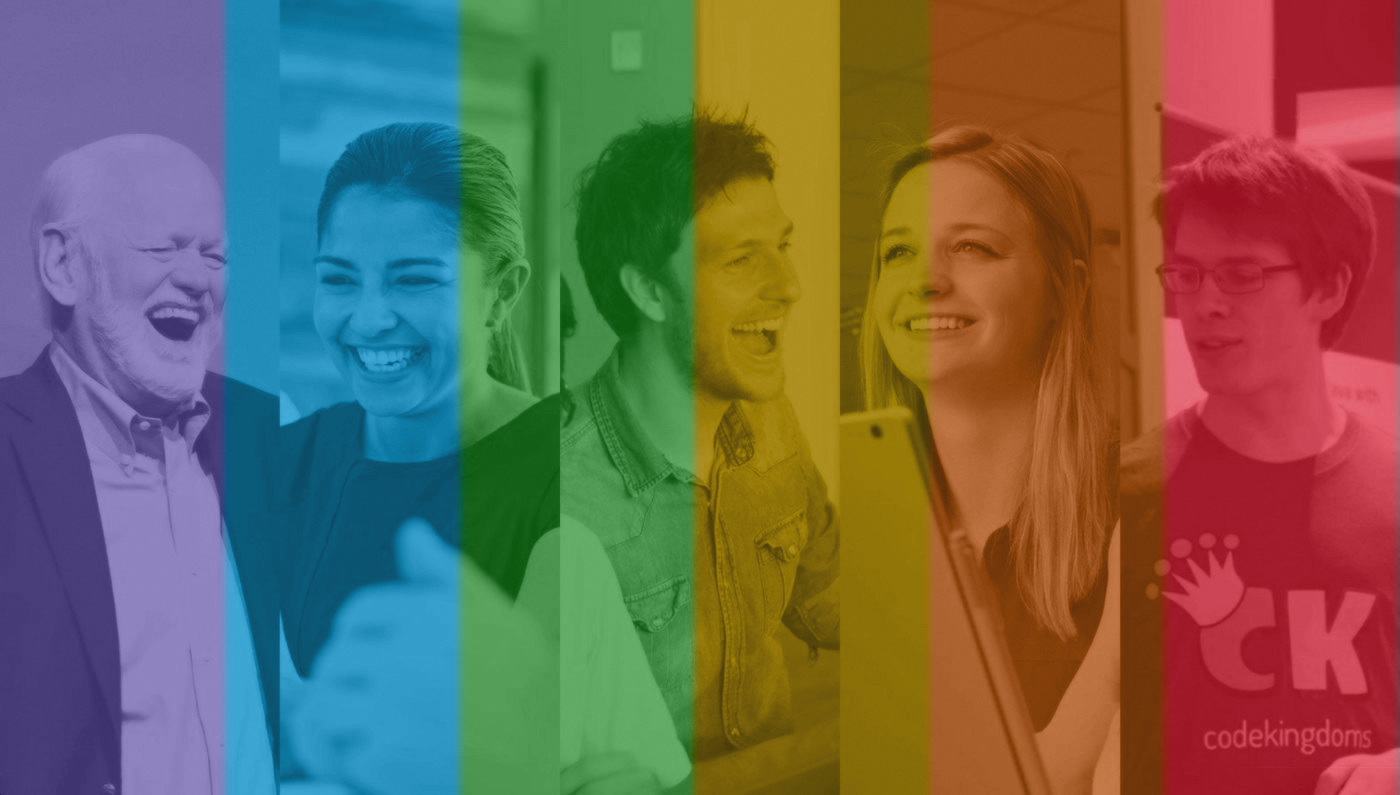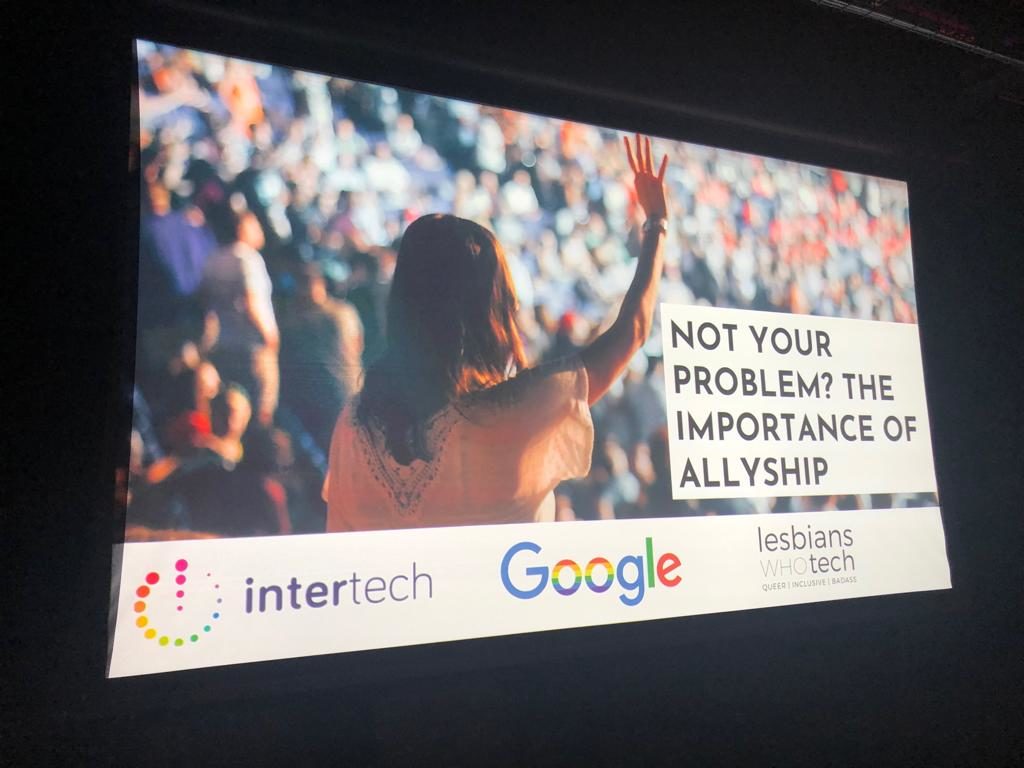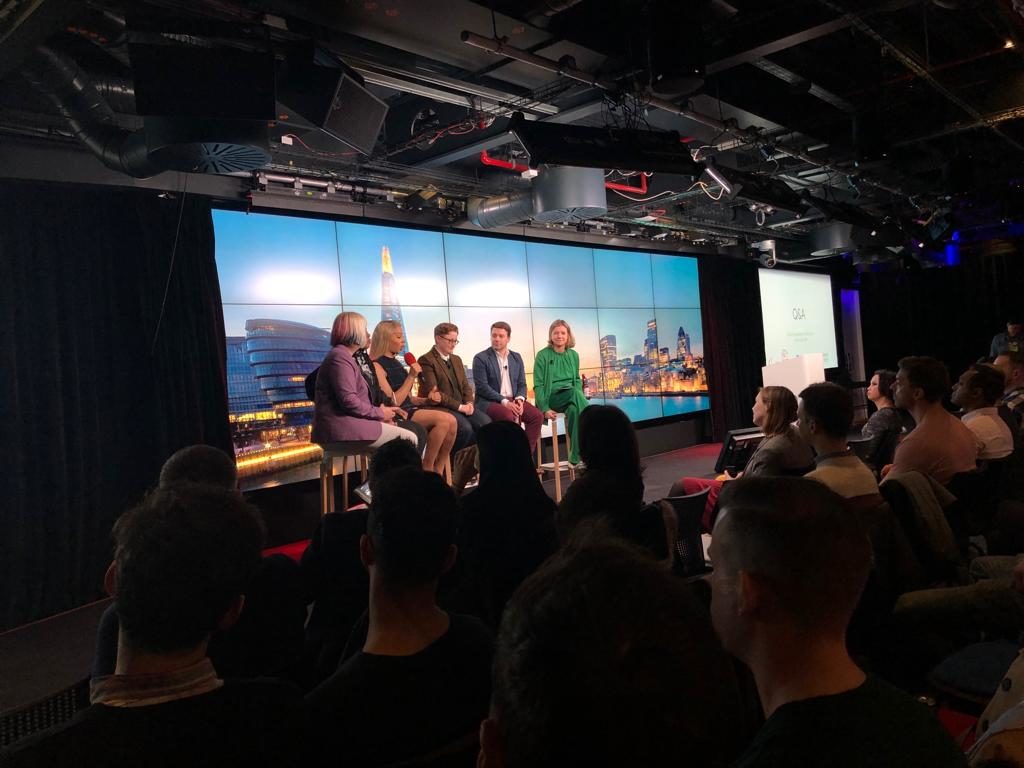Pride Month: being a better ally is simple…

Jun 2019
“Being an ally is not a status. It is an action”
This Pride Month we’ve been thinking about what it means to be an ally to our friends, colleagues and loved ones in the LGBT+ Community. Today’s blog post was written by Salary Finance Sales & Marketing Operations Analyst, Helen Brown, who recently attended Google’s “Not your problem? The importance of Allyship” session, where she discovered that even as a member of the LBGT+ community, there was still a lot to learn about being an ally.
I came out seven years ago and have gone through times where I was not allowed to be myself, did not feel safe to be myself, and have been targeted for being myself. We still live in a society where this is the reality for a lot of people, myself included. A lot of people think the fight for LGBT+ equality stopped when marriage was legalised. Despite the law, prejudice, violence and abuse toward the LGBT+ community is still prevalent. Allies are fundamentally important in creating an environment where we can all feel safe to be ourselves, and this extends to other marginalised groups.
I recognise that as a white LGBT+ person, I need to speak out against racial abuse. As a lesbian I need to speak out against transphobia. As a non muslim person, I need to speak out against Islamaphobia. Equally, I need my male friends to speak out against sexism and my straight friends to speak out against homophobia. We all have privileges, and we all have power to be an ally.

“Being an ally is not a status. It is an action”
That was the biggest takeaway I took from the event, and luckily for all of us being a good ally can be really simple;
Celebrate differences – this can be as easy as attending a Proud@SF event, a Women@SF event and showing your support. It might even inspire you to create your own network! If you’d like more information on these events, please contact me via email here for Proud@SF and my colleague Tamara here for Women@SF events. All are welcome to come along and join us!
Educate yourself – I am learning new things every day. We cannot know everything about every group, but we can be proactive in learning. Luckily for us, Salary Finance is diverse – learn from your colleagues.
Everyone has an unconscious bias – deconstruct yours to find the root.
Get uncomfortable – allyship isn’t easy: it takes courage, but changing the world is never easy!
Remember your privileges – we all have them.
Share your power and your education – challenge people to think differently. It can be as simple as questioning somebody’s use of language.
Marginalised people cannot do all the work – we can fly all the flags we want and march in all the parades we want. But when the message comes from a person who doesn’t directly benefit from our campaigns, it is so much more powerful.
Pronouns are valid whatever they may be – we all have the right to be referred to in whatever way we choose. Misgendering somebody can be psychologically damaging. If someone says that their pronouns are “he”, “she”, “they” – listen to them and respect that.

I am still growing and learning. My call to action for you is to speak out when you’re in a position of power, look at the list above and think “what simple thing can I do to change the world?”
With thanks to the five inspirational speakers:
- Ruth Hunt, CEO of Stonewall
- Susie Green, CEO of Mermaids UK
- Munroe Bergdorf, Social Activist, Broadcaster & Model
- Sanisha Wynter, Independent Diversity and Inclusion Adviser
- Major Robert Ridley, British Army